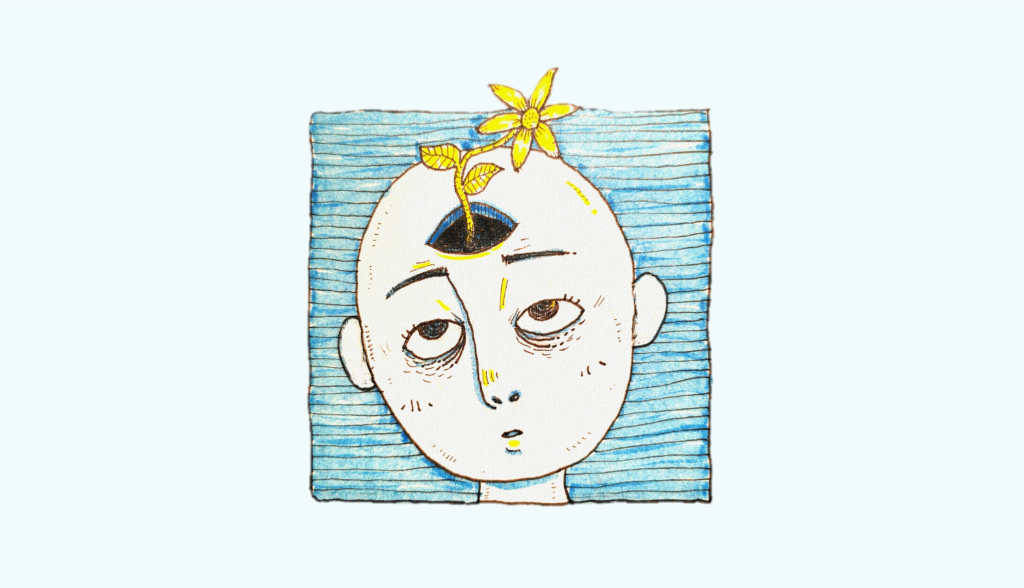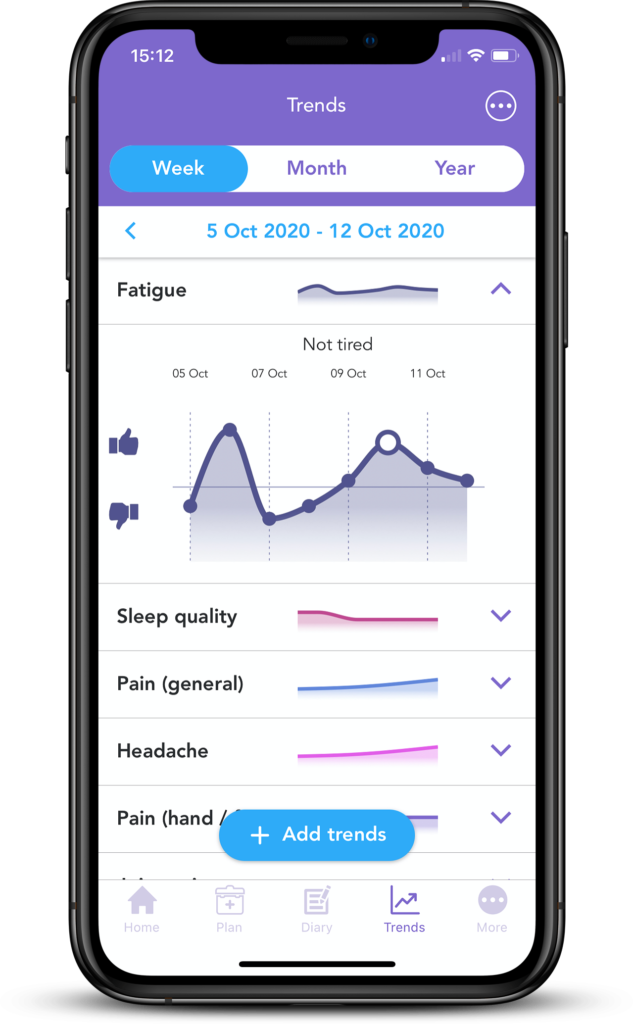
What is cancer-related fatigue?
Cancer-related fatigue (CRF) is recognised as being one of the most common and weakening side effects of cancer. In fact, the vast majority of cancer patients are thought to suffer from fatigue at some point during or after treatment 1.
Fatigue is not “just tiredness”, although they can often be confused. It is not the type of tiredness that you may get after a day of strenuous activities and that you know a good night’s rest can solve. People with cancer know what being tired normally feels like; this feeling of fatigue is different. It is an unusual and extreme feeling of tiredness or daily lack of energy, that affects the whole body and cannot be relieved by sleep. It is often described as “paralysing” and “exhaustion”.
Cancer-related fatigue can affect you physically, mentally and emotionally. It may have a negative impact on work, social relationships, mood, and daily activities, ultimately reducing your quality of life. CRF usually gets better after treatment, but it can last for weeks, months, or even longer after treatment has ended. The effects of fatigue and how long they last differ for each person.
What causes cancer-related fatigue (CRF)?
CRF can be caused by many different factors, including the cancer itself and/or cancer treatments. It can also be caused by anaemia (low level of red blood cells), emotional issues (e.g. depression), pain, or even other health problems. The causes of CRF are still not fully understood, but this page on Cancer Research UK does a great job of explaining the known ones.
What should I look out for?
- Some effects of cancer-related fatigue include:
- Feeling extremely tired and it doesn’t get better with rest or sleep
- Having no energy or feeling weak
- Feeling more tired than usual when carrying out your normal, everyday tasks
- Feeling tired or breathless after light activities (e.g. showering, brushing your hair)
- Spending more time in bed and wanting to sleep more
- Having problems getting to or staying asleep
- Your arms and legs feel heavy and are difficult to move
- Losing interest in things you usually enjoy doing
- Finding it difficult to concentrate and remember things
- Having difficulty with thinking and making decisions
- Your mood feels low and you are more emotional than usual
What can I do?
Even though fatigue is a common symptom reported in cancer patients, it is still important to tell your cancer care team if you are suffering from this. It might not be as “normal” as you think, and they may have specific advice for you.
“Although there is a lot that we still don’t know about the different mechanisms underpinning fatigue, we now have specific, evidence-based recommendations for treating it: the first is to initiate or maintain adequate levels of physical activity and limit sedentary time as much as possible. Data also supports the use of psychosocial interventions such as cognitive behavioural therapy”
Dr. Antonio Di Meglio
Here are some tips that may help you to minimise the effects of CRF:
- Medical interventions
- Some causes of fatigue (such as anaemia, depression, lack of sleep and pain) are more manageable with medical interventions.
- It is important that you discuss the fatigue you are feeling with your doctor so that they can rule out the more easily treatable symptoms, which may help to improve your quality of life.
- Conserving energy
- Keep a fatigue diary
- Tracking your fatigue helps you to keep a record of how you are feeling on a daily or weekly basis.
- You can learn when you feel the most energetic versus the most drained from your energy patterns.
- You can also learn which activities take up more of your energy.
- This can help you to learn your limits so that you can plan when the best time to carry out activites and rest are.
- Plan time into your schedule to rest or take naps throughout the day with a half-hour time limit.
- Keep to a regular sleep routine.
- Adjust your work schedule to prioritise the important things, in case you don’t have energy to fulfill all of your daily tasks.
- Keep a fatigue diary
- Exercise
- Regular moderate exercises (e.g. walking, swimming and aerobics) have been found to significantly reduce fatigue in cancer patients 2.
- Exercise can help to improve your energy levels, sleep quality, mood, and appetite.
- Don’t overdo it – if you are not used to regular exercise, start small and build up your comfort and stamina slowly.
- Nutrition
- It is important to drink plenty of fluids and eat healthily, in order to keep your energy levels up.
- There is evidence to suggest that diets that reduce inflammation, such as the Mediterranean diet and other plant-based diets, may reduce fatigue in cancer patients 3.
- Supplementation with ginseng, ginger, or probiotics may improve energy levels 3.
- Keep note of what you have eaten to review whether certain foods help you to feel more energetic.
Make sure to talk with your cancer care team before changing your exercise or diet plans.
 In the OWise app, you can track your fatigue to learn about patterns in your energy levels. This can help you with your fatigue diary, and to learn which activities consume more of your energy. This way, you can define your limits and plan your days accordingly.
In the OWise app, you can track your fatigue to learn about patterns in your energy levels. This can help you with your fatigue diary, and to learn which activities consume more of your energy. This way, you can define your limits and plan your days accordingly.
Try out these tips and let us know if this article has helped you. Do you have any comments or suggestions?
Useful Links
CRUK – https://www.cancerresearchuk.org/about-cancer/coping/physically/fatigue
Cleveland Clinic – https://my.clevelandclinic.org/health/diseases/5230-cancer-fatigue
References
- Banipal, R.P.S., Singh, H. and Singh, B., 2017. Assessment of cancer-related fatigue among cancer patients receiving various therapies: A cross-sectional observational study. Indian journal of palliative care, 23(2), p.207.
- Cramp, F. and Byron‐Daniel, J., 2012. Exercise for the management of cancer‐related fatigue in adults. Cochrane database of systematic reviews, (11).
- Inglis, J.E., Lin, P.J., Kerns, S.L., Kleckner, I.R., Kleckner, A.S., Castillo, D.A., Mustian, K.M. and Peppone, L.J., 2019. Nutritional Interventions for Treating Cancer-Related Fatigue: A Qualitative Review. Nutrition and cancer, 71(1), pp.21-40.
